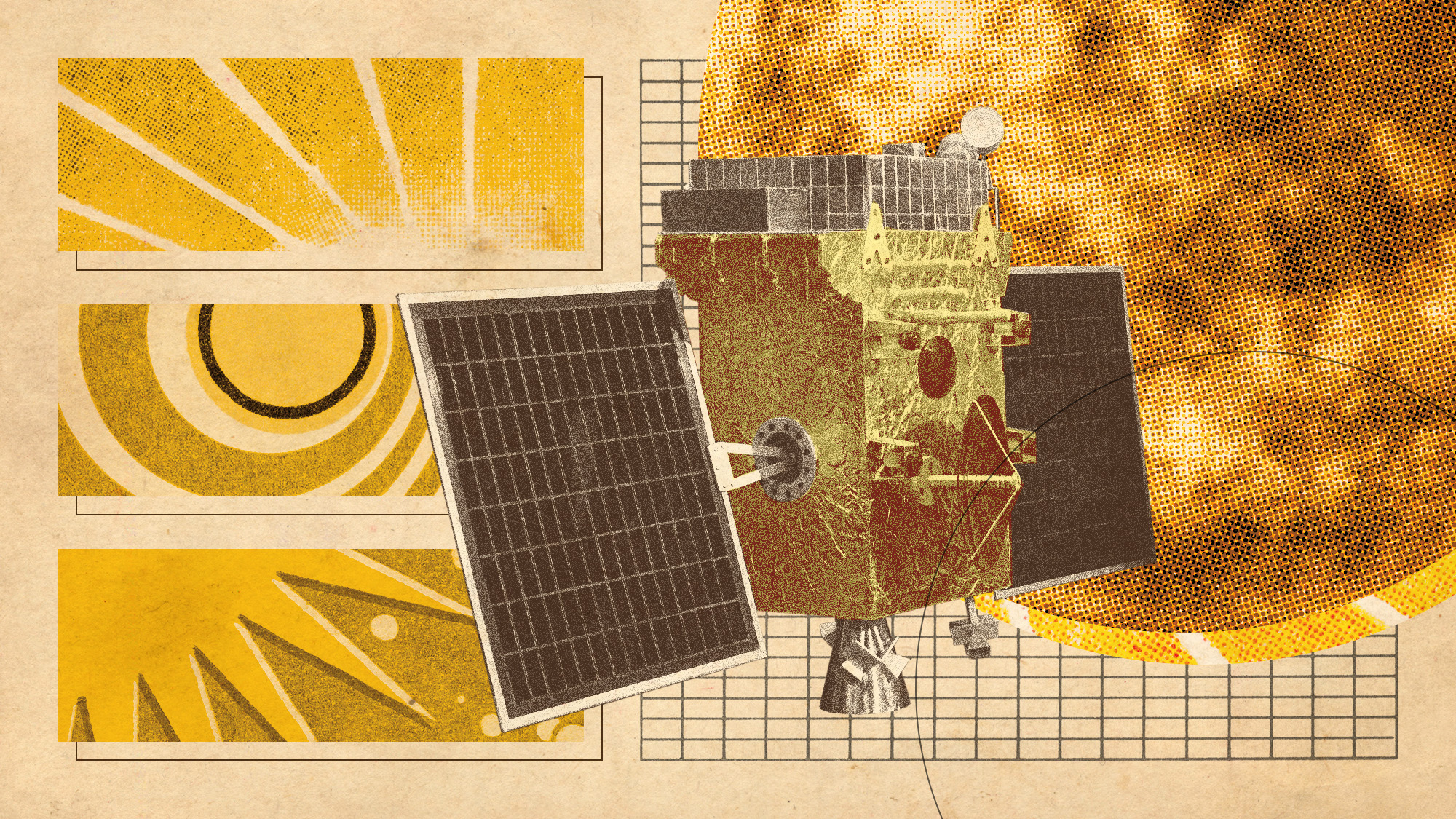Climate change is driving Indian women to choose sterilization
Faced with losing their jobs, they are making a life-altering decision


A free daily email with the biggest news stories of the day – and the best features from TheWeek.com
You are now subscribed
Your newsletter sign-up was successful
Hundreds of women from the district of Beed in India's western state of Maharashtra have been "forced to make an unthinkable choice," The Independent said, removing their wombs to keep earning money in "grueling work as a migrant sugarcane worker." A recent study into the sterilization trend found a direct link between climate change and the region in which the women work.
An end to the monthly 'pain and stain'
The women in Beed are making life-altering decisions in the face of unbearable menstrual cramps, dwindling resources and rarer opportunities for work near their homes. Jayashree Owhal, a 45-year-old cane cutter from Beed, told The Independent she decided to have a hysterectomy after a gynecologist suggested she stop lifting heavy bundles of sugarcane, the only source of income she had. She chose instead to have the procedure to "get rid of this every month 'pain and stain.'"
Beed has been one of the worst "drought-impacted areas in India," the Independent said. Less rainfall and rising temperatures driven by the global climate crisis have intensified the conditions in the area, with the region suffering several droughts in recent years. The conditions have "devastated local agriculture, making incomes from farms unreliable for most of Beed's residents," the Independent said. There is no farming for eight months out of the year due to the lack of rain, forcing many to travel more than 240 miles to the Kolhapur district to work in the sugarcane industry. Over 1.5 million people from Maharashtra state leave to work in sugarcane fields annually, according to Oxfam India.
The Week
Escape your echo chamber. Get the facts behind the news, plus analysis from multiple perspectives.

Sign up for The Week's Free Newsletters
From our morning news briefing to a weekly Good News Newsletter, get the best of The Week delivered directly to your inbox.
From our morning news briefing to a weekly Good News Newsletter, get the best of The Week delivered directly to your inbox.
The work typically involves backbreaking 12- to 16-hour shifts. Married couples work in teams known as Jodis, hired informally by local contractors called Mukkadams, the Independent explained. Men cut the cane, and women tie and slack the bundles. They bend for hours, pick up heavy bundles and walk for miles. The physically demanding nature of the work "takes a toll on women," the outlet said, "particularly during their periods."
Owhal said she started bleeding "very heavily while carrying the bundles in 2017." Since then, the bleeding has increased, and it "became a routine," she said. The women also don't have access to proper sanitary products, forcing them to employ the unclean clothes they use to carry the bundles on their heads. Owhal and others like her cannot afford to lose daily wages due to being unable to work, nor do they want to face exploitative fees from Mukkadams for missing work. So, they opt to take the drastic measure of having a hysterectomy.
The climate crisis has 'decimated their livelihoods'
Beed has long had a reputation for an abnormally high number of hysterectomies. A 2018 government survey of 200 women in Beed by the Maharashtra State Commission for Women revealed that 36% of the women had undergone the procedure. Research recently published by the International Institute for Environment and Development (IIED) highlighted a connection between the impact of climate change and the number of women who have had the procedure in the area. Of the 423 households surveyed in Beed, 253 said they were forced to migrate for work, with most attributing the decision to repeated droughts and crop failures. Among those that migrated, over half of women, 55%, had undergone a hysterectomy. Of the households that stayed in Beed, only 17% had the procedure.
Families in the district "face a tough choice for survival" because of "recurring drought, water scarcity, failing crops and a crippling cycle of debt," Ritu Bhardwaj, a principal researcher for IIED, said to The Independent. The women are also faced with significant personal challenges beyond their finances, "including the loss of health and well-being due to forced labor in adverse conditions and the mental and psychological toll of undergoing procedures like hysterectomies," Bhardwaj said. Some women told researchers they were still in their child-bearing years when they had the procedure.
A free daily email with the biggest news stories of the day – and the best features from TheWeek.com
Bhardwaj said the women working in the sugarcane fields should be compensated for their ordeal from the loss and damage fund created at COP27, the United Nations global climate summit for people suffering irreversible losses caused by climate impacts. She said the damage done by climate change is not limited to "flooded apartments in New York, or scorched hillsides in Greece." These women are also victims of climate change, which has "decimated their livelihoods," she said, and "some of what they have lost — their dignity, good health, in some cases their lives — is difficult to quantify."
Theara Coleman has worked as a staff writer at The Week since September 2022. She frequently writes about technology, education, literature and general news. She was previously a contributing writer and assistant editor at Honeysuckle Magazine, where she covered racial politics and cannabis industry news.
-
 The ‘ravenous’ demand for Cornish minerals
The ‘ravenous’ demand for Cornish mineralsUnder the Radar Growing need for critical minerals to power tech has intensified ‘appetite’ for lithium, which could be a ‘huge boon’ for local economy
-
 Why are election experts taking Trump’s midterm threats seriously?
Why are election experts taking Trump’s midterm threats seriously?IN THE SPOTLIGHT As the president muses about polling place deployments and a centralized electoral system aimed at one-party control, lawmakers are taking this administration at its word
-
 ‘Restaurateurs have become millionaires’
‘Restaurateurs have become millionaires’Instant Opinion Opinion, comment and editorials of the day
-
 How climate change is affecting Christmas
How climate change is affecting ChristmasThe Explainer There may be a slim chance of future white Christmases
-
 Why scientists are attempting nuclear fusion
Why scientists are attempting nuclear fusionThe Explainer Harnessing the reaction that powers the stars could offer a potentially unlimited source of carbon-free energy, and the race is hotting up
-
 Canyons under the Antarctic have deep impacts
Canyons under the Antarctic have deep impactsUnder the radar Submarine canyons could be affecting the climate more than previously thought
-
 NASA is moving away from tracking climate change
NASA is moving away from tracking climate changeThe Explainer Climate missions could be going dark
-
 What would happen to Earth if humans went extinct?
What would happen to Earth if humans went extinct?The Explainer Human extinction could potentially give rise to new species and climates
-
 Bacteria can turn plastic waste into a painkiller
Bacteria can turn plastic waste into a painkillerUnder the radar The process could be a solution to plastic pollution
-
 Florida has a sinking condo problem
Florida has a sinking condo problemUNDER THE RADAR Scientists are (cautiously) ringing the alarms over dozens of the Sunshine State's high-end high-rises
-
 Indian space mission's moment in the Sun
Indian space mission's moment in the SunUnder the Radar Emerging space power's first solar mission could help keep Earth safe from Sun's 'fireballs'
